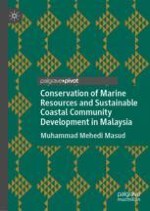2019 | OriginalPaper | Chapter
5. Sustainability Dimensions of Marine Park Community Development in Malaysia
Author : Muhammad Mehedi Masud
Published in: Conservation of Marine Resources and Sustainable Coastal Community Development in Malaysia
Publisher: Springer Singapore
Activate our intelligent search to find suitable subject content or patents.
Select sections of text to find matching patents with Artificial Intelligence. powered by
Select sections of text to find additional relevant content using AI-assisted search. powered by
